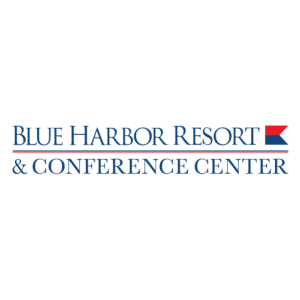What Good Is a Hobby?
11/01/2021
By Molly Rose Teuke
“A hobby is only fun if you don’t have time to do it.” — Leo Beenhakker, Dutch international football coach
If asked to name a half-dozen hobbies people might engage in, you could probably do it easily: gardening, birding, knitting, fishing, photography, painting. Maybe woodworking, sewing, yoga, or learning a musical instrument or a new language. Even beekeeping, scrapbooking, geocaching or playing bridge.
Listing the benefits of having a hobby, however, might be tougher. There are a few obvious benefits. A hobby can help you relax, for example. Or it can give you something to look forward to, inspire a sense of accomplishment or provide a way to socialize around a common interest.
A Healthier You
There are also measurable health benefits to having a hobby. In 2010, a team of researchers from several universities cited outcomes from across four studies of 1,394 men and women who had various health issues and also engaged in hobbies: lower body mass index, smaller waist circumference, lower blood pressure, lower stress hormones and better overall health.
Participants also reported getting better sleep, and feeling a greater sense of purpose and life satisfaction.
In a 2015 study published in the Annals of Behavioral Medicine, researcher Matthew Zawadzki linked “mentally engaging” leisure activities to reduced levels of depression, improved mood and a lower heart rate — even when the subjects were not participating in the activity in the moment. “We’re still talking about the short term, but there was a definite carryover effect later in the day,” he says. “If we start thinking about that beneficial carryover effect day after day, year after year, it starts to make sense how leisure can help improve health.”
A Smarter You
Researchers have long known that regular physical exercise helps improve cognitive function, such as memory recall and problem-solving. They now know that recreational and leisure activity can contribute to a healthy brain, too, so long as it requires mental effort.
If you’re like most people, maintaining a healthy brain means you won’t grow more forgetful with every passing year. But ongoing practice is key, according to Dr. John N. Morris, director of social and health policy research at the Harvard-affiliated Institute for Aging Research. “Embracing a new activity that forces you to think and learn, and requires ongoing practice can be one of the best ways to keep the brain healthy. It is the constant repetition of working to improve, and not the quest for mastery, that can have the greatest impact,” notes Morris. “You can’t improve memory if you don’t work at it. The more time you devote to engaging your brain, the more it benefits.”
“It’s important to get out and do something that is unfamiliar and mentally challenging, and that provides broad stimulation mentally and socially,” confirms Denise Park, a psychological scientist at the University of Texas at Dallas. The key is to strive for a balance of a little more challenge than skill. Too much challenge results in anxiety. Too little challenge results in boredom.
All About the Flow
Flow is that feeling you get when an activity just spills out of you, when you’re “in the zone.” The concept was pioneered by Mihaly Csikszentmihalyi in his popular 1990 book, “Flow: The Psychology of Optimal Experience.” Csikszentmihalyi reasoned that happiness is not a fixed state and can be heightened by being in flow — which doesn’t include vegging out in front of the TV or even spending a quiet evening with friends.
“The best moments in our lives are not the passive, receptive, relaxing times,” he says. “The best moments usually occur if a person’s body or mind is stretched to its limits in a voluntary effort to accomplish something difficult and worthwhile.” When you are in flow, you’re so involved that you don’t notice what’s going on around you. Your sense of time is distorted, you don’t notice the clock, or whether you’re tired or hungry. You turn off your inner critic. Your concentration is so intense that there is no attention left to ruminate on the problems in your work or life. It’s a feeling of being completely free in your pursuit of choice.
What’s It Worth to You?
In 2019, Bluprint, a company offering thousands of hours of instructional videos aimed at the hobby market, partnered with global consulting firm Ipsos to conduct a survey of 2,000 randomly selected adults. Results suggest that 75% of Americans have creative hobbies and are reluctant to let them go. Of respondents in the Bluprint survey who have a Netflix subscription, 77% say they would rather give up Netflix than give up their hobby.
Respondents also say that creative activities make them feel better than watching TV or browsing social media. “We heard it from our customers for years,” says John Levisay, former Bluprint CEO. “When you talk to a quilter or a cook or a knitter, they all talk about this kind of flow state that they get in when they’re making [something]. It’s similar to meditation or yoga, where your blood pressure comes down, and you forget about a lot of the mayhem in the world or personal stress.”
“Our data shows that people who participate in creative hobbies vs. those who do not are more likely to describe themselves as happy, joyful [and] passionate,” adds Maggie King, former director of consumer insights at Bluprint.
Choose Wisely
An important consideration in choosing a hobby is to avoid the need to be productive, lest you lose the joy. “Becoming serious is a grievous fault in hobbyists,” wrote the great naturalist Aldo
Leopold. “It is an axiom that no hobby should either seek or need rational justification. To wish to do it is reason enough. To find reasons why it is useful or beneficial converts it at once from an avocation into an industry — lowers it at once to the ignominious category of an ‘exercise’ undertaken for health, power or profit.”
Sure, some research suggests that having a hobby makes you more creative, more productive and more satisfied at work, but making that your motivation is a slippery slope. As Jaya Saxena wrote in a 2018 New York Times article titled, “The Case for Having a Hobby,” “Many hobbies have morphed into the dreaded side hustle or as paths to career development, turning the things we ostensibly do for fun into … more work. (‘Like embroidery? You should be selling your creations on Etsy!’).”
American actress, comedian and writer Amy Sedaris had the right idea when she said, “Crafting, or ‘making things,’ has always been a delightful pastime of mine because it requires putting common elements together in order to achieve a lovely something that nobody needs.”
Think your job is too demanding to allow time for a hobby? Heed the advice of someone who had plenty of reason to say he was too busy, but had multiple hobbies anyway. “To be really happy and really safe, one ought to have at least two or three hobbies, and they must all be real.” That’s Winston Churchill, who counted painting, landscaping, fencing and bricklaying among his many hobbies.
“Change is the master key,” he believed. “A man can wear out a particular part of his mind by continually using it and tiring it, just in the same way as he can wear out the elbows of his coat. There is, however, this difference between the living cells of the brain and inanimate articles: One cannot mend the frayed elbows of a coat by rubbing the sleeves or shoulders; but the tired parts of the mind can be rested and strengthened, not merely by rest, but by using other parts. It is not enough merely to switch off the lights which play upon the main and ordinary field of interest; a new field of interest must be illuminated.”
Thomas Fletcher, chair of the Leisure Studies Association and a senior lecturer at Leeds Beckett University in the U.K., turns the work/time conversation on its head: “In thinking about the relationship between work and leisure, I would argue that, rather than thinking about how leisure can promote greater productivity at work, a more important consideration is about how work inhibits our leisure time.”
Molly Rose Teuke has an enduring curiosity about what makes our brains tick. Pre-COVID-19, she offered a program for Nicolet College called Getting Your Brain on Your Side and delivered brain-based leadership training for the NeuroLeadership Institute, a global leader in the performance arena. She also hosts a weekly classical music program on WXPR-FM. You can reach her at mollyrosecoaching.com.











